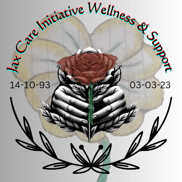The Ultimate Guide to Comprehensive Self-Care for a Healthier You
Explore essential self-care practices to enhance your mental and physical health. Learn practical tips for daily routines and discover the benefits of prioritizing self-care.
SELF-CAREWELLNESS MENTAL HEALTHHEALTH
jax.care
7/21/20243 min read


The Ultimate Guide to Self-Care and Wellness
Introduction
Self-care is an essential aspect of maintaining overall well-being. It involves taking deliberate actions to nurture your physical, mental, and emotional health. By prioritizing self-care, you can enhance your quality of life, boost resilience, and prevent burnout. In this guide, we’ll explore various forms of self-care and practical tips to incorporate them into your daily routine.
The Importance of Self-Care
Self-care is crucial for sustaining energy levels and promoting a positive outlook on life. Neglecting self-care can lead to increased stress, anxiety, and other health issues. Remember, taking care of yourself is not selfish; it's a necessary step towards being your best self for others. Engaging in regular self-care activities can lead to improved mood, better physical health, and a greater ability to handle daily stressors.
Types of Self-Care
Physical Self-Care: Physical self-care involves activities that improve your physical health. Regular exercise, a balanced diet, and adequate sleep are fundamental components. For instance, taking a brisk 20-minute walk in your neighborhood can significantly boost your mood and energy levels. Cooking a simple, healthy meal at home, like a stir-fry with vegetables and lean protein, is another great way to take care of your body.


Emotional Self-Care: Emotional self-care includes activities that help you process and express your emotions. Journaling can be a powerful tool. Spend 10-15 minutes each day writing about your thoughts and feelings. Talking to a friend or family member you trust can also provide emotional support. If you’re comfortable, try to set aside time each week to reflect on your emotions and address any negative feelings.
Mental Self-Care: Mental self-care involves engaging in activities that stimulate your mind and reduce stress. Reading a book, doing puzzles, or even watching a documentary can be excellent ways to keep your mind active. If you’re new to these activities, start small. For example, read a chapter of a book before bed or solve a small puzzle during your lunch break.
Social Self-Care: Social self-care is about building and maintaining healthy relationships. Spending time with friends and family, joining clubs, or participating in community events can enhance your social well-being. Even simple acts like calling a friend for a chat or scheduling a regular video call can make a big difference.
Spiritual Self-Care: Spiritual self-care involves practices that nurture your spirit and provide a sense of purpose. This doesn’t necessarily mean religious activities; it can be anything that helps you feel connected to something bigger than yourself. Meditation, spending time in nature, or even practicing gratitude can be powerful spiritual self-care practices. Start by taking a few moments each day to breathe deeply and reflect on what you’re thankful for.
Creating a Self-Care Routine
Developing a consistent self-care routine is key to integrating these practices into your daily life. Start by identifying the activities that bring you joy and relaxation. Set aside dedicated time for self-care, just as you would for any other important appointment. For example, you might begin your day with a short meditation session, take regular breaks during work to stretch or walk, and wind down in the evening with a calming activity like reading or a warm bath.
If you’re struggling to find time, try to incorporate self-care into your existing routines. For instance, while cooking dinner, listen to a podcast that interests you. During your commute, practice mindfulness or deep breathing exercises. The key is to find moments throughout your day to focus on your well-being.
Overcoming Barriers to Self-Care
While self-care is crucial, many people face barriers that make it challenging to maintain these practices. Common obstacles include lack of time, guilt, and not knowing where to start. It’s important to recognize these barriers and develop strategies to overcome them.
Start by prioritizing self-care and recognizing its importance. Set realistic goals and break self-care activities into smaller, manageable tasks. If you feel guilty about taking time for yourself, remind yourself that self-care enables you to be more effective and present in your other responsibilities. Seek support from friends, family, or a mental health professional if needed. Remember, overcoming these barriers is a step-by-step process, and it's okay to seek help along the way.
Resources and Support for Self-Care
There are numerous resources available to support your self-care journey. These include books, apps, online communities, and professional services that can provide guidance and encouragement.
Consider exploring self-care apps that offer guided meditations, workout plans, or journaling prompts. Books on self-care and wellness can provide deeper insights and practical tips. Online communities and support groups can offer a sense of connection and shared experiences. Additionally, seeking professional help from therapists or wellness coaches can provide personalized guidance tailored to your needs.
Conclusion
By incorporating these self-care practices into your daily routine, you can significantly improve your mental and physical well-being. Remember, self-care is a journey, not a destination. Be patient with yourself and make adjustments as needed.


